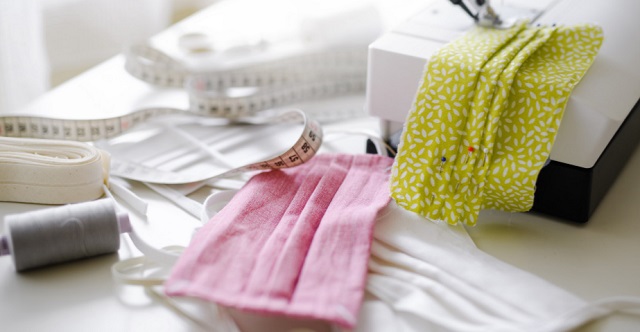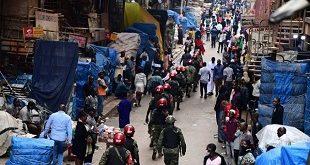
Kampala, Uganda | THE INDEPENDENT | The Uganda National Bureau of Standards has warned the manufacturers, importers and dealers in facemasks and face shields to strictly follow the standards.
This comes ahead of the reopening of the education sector by the government, which would see the demand for facemasks and shields increase in a few months.
Among the requirements the government has given to schools, is ensuring that each child has facemasks for protection against contracting or spreading coronavirus while at school.
The government has been providing free facemasks, but purchases by the public dominate the market.
There is also concern that most of the masks on the market are not branded and can therefore not be traced to the manufacturer or importer, making it difficult to guarantee their quality standards.
Most of them do not even have any labels for the user to know the type of fabric, fabric combination or even the usage, leaving the public exposed to either the virus that causes Covid-19 or risks arising out of the mask itself.
By October 2020, at least 40 companies had been certified to make non-medical facemasks.
The manufacturer is supposed to indicate whether the mask is disposable or reusable, or even how many times it is supposed to be washed. When colours fade, for example, it is an indication that the mask may now be too weak to be providing adequate protection.
Production of facemasks is dominated by small-scale, informal and unregulated enterprises, and these are pointed out for the sub-standard products.
It is common to find a mask of a single layer, whether it is cotton, polyester, or chiffon, on the roadsides or shops, and many buyers are attracted by price differences and colour.
The UNBS says currently, single-layer masks are not allowed, because they cannot guarantee the needed protected. However, other small producers have produced quality masks, according to the surveys done by the UNBS.
John Sanyu, who manages the materials laboratory in the testing department at the UNBS, says that combination of materials in the right way is very crucial, with cotton being the most dominant in these combinations.
Other materials are also accepted provided they are correctly combined with others, especially cotton.
Sanyu says the standards allow for slight variations in the combination values but this also has limits, citing materials like flannel, spandex and silk.
The standard does not only stop at fabric combination and layers but others like how easily a mask fits on the users face because the more the gaps left, the higher the level of risk exposure.
UNBS also says the kind of strap used also matters because it is supposed to remain steadfast until the user must remove it. Before the masks are put on the market, they have to be tested for contamination, using the method known as Total Plate Count (TPC).
The Uganda Manufacturers Association, which has both SME and large-scale manufacturers producing masks, says they welcome the standards.
The Executive Director, Daniel Birungi says they demanded strict standards and at that time they were needed as fast as possible to counter the threat of the pandemic, and to prevent an influx of sub-standard products onto the market.
The UNBS has also developed standards for face shields (eye and face protection for occupational use), targeting shields for general use like protection against covid-19 as well other shields like those for industrial use like welding.
********
URN
 The Independent Uganda: You get the Truth we Pay the Price
The Independent Uganda: You get the Truth we Pay the Price


